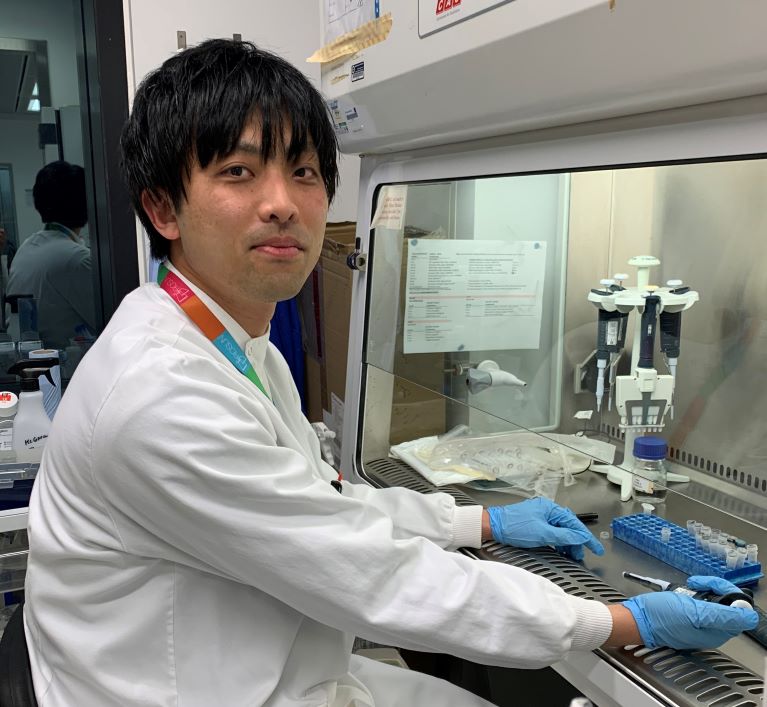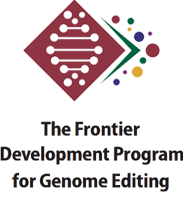 Doctoral Program for World-leading Innovative & Smart Education
Doctoral Program for World-leading Innovative & Smart Education
Alumni Voices
Developer of basic genome editing research
 |
Expanding My Research Scope Through Cutting-Edge Knowledge and Expert Interaction, Leading to Pursuing Research Abroad |
|
ICHIKAWA Kennosuke Affiliation: The Roslin Institute (University of Edinburgh, UK) |
|
|
Life Science Course / Doctoral Course, Graduate School of Integrated Sciences for Life Completion in 2022 |
<Work Experience>
| Organization/ Role | Job Description |
|---|---|
|
Graduate School of Integrated Sciences for Life, Hiroshima University/ Research Fellowship for Young Scientists(DC1), Japan Society for the Promotion of Science (JSPS) |
04/2019 - 03/2022 Elucidation of the host immune response mechanisms in birds and the differentiation mechanisms of avian germ cells utilizing genome editing technology |
| Hiroshima University Genome Editing Innovation Center / Researcher |
04/2022 - 03/2023 Elucidation of the host immune response mechanisms in birds and the differentiation mechanisms of avian germ cells utilizing genome editing technology |
|
The Roslin Institute, University of Edinburgh/ Overseas Research Fellowship, Japan Society for the Promotion of Science (JSPS) |
04/2023 - Present Establishment of avian stem cell culture technology for the purpose of developing genome editing technology in birds |
― What motivated you to join the Frontier Development Program for Genome Editing?
This program was established just as I was about to enter the doctoral course of the Graduate School. I recognized that it provides the most advanced knowledge of genome editing and bioinformatics technology in a systematic way. I believed this program would be particularly instrumental in broadening the scope of my research. Thus, I decided to transfer to the third year of its five-year curriculum at the same time as I entered the Graduate School's doctoral course.
― What did you learn from the internship?
I was dispatched to the National Agriculture and Food Research Organization (NARO), a National Research and Development Agency. This was an invaluable experience for me, as I had discussions with local researchers and learned infection experiment techniques that were difficult to conduct in my home laboratory. I was also exposed to the research environment at a national research institute, which differed from that of universities and was very helpful in considering my future career.
― How are you utilizing what you learned in the program?
As a university researcher, I am currently engaged in genome editing research. The knowledge and expertise I gained in this program directly benefit my work. For example, the program enabled me to gain a comprehensive understanding of various research methods using genome editing, along with their use cases. This experience has been useful when drafting research plans.
― Please tell us about the career path you envisioned as a student and your current career.
From the beginning of my university studies, I aspired to become a researcher, although I had not initially considered studying and researching abroad. During my university days, I conducted research on avian reproductive biology and immunology by applying the knowledge and expertise I gained from the program. Throughout that time, my desire to further deepen my expertise grew stronger. After earning my doctorate, I decided to conduct research abroad at the Roslin Institute in the UK, a leading center for avian genome editing.
― What advice would you give to younger students?
In addition to the knowledge gained from the lectures, the opportunity to interact with students and faculty from other laboratories through this program was a great asset to me. I believe one of the most attractive aspects of the program is the opportunity to exchange opinions with experts from various fields, such as agriculture, science, and medicine. I encourage you to actively take advantage of this program to advance your research and develop your career.
*The information here is as of January 2025.
